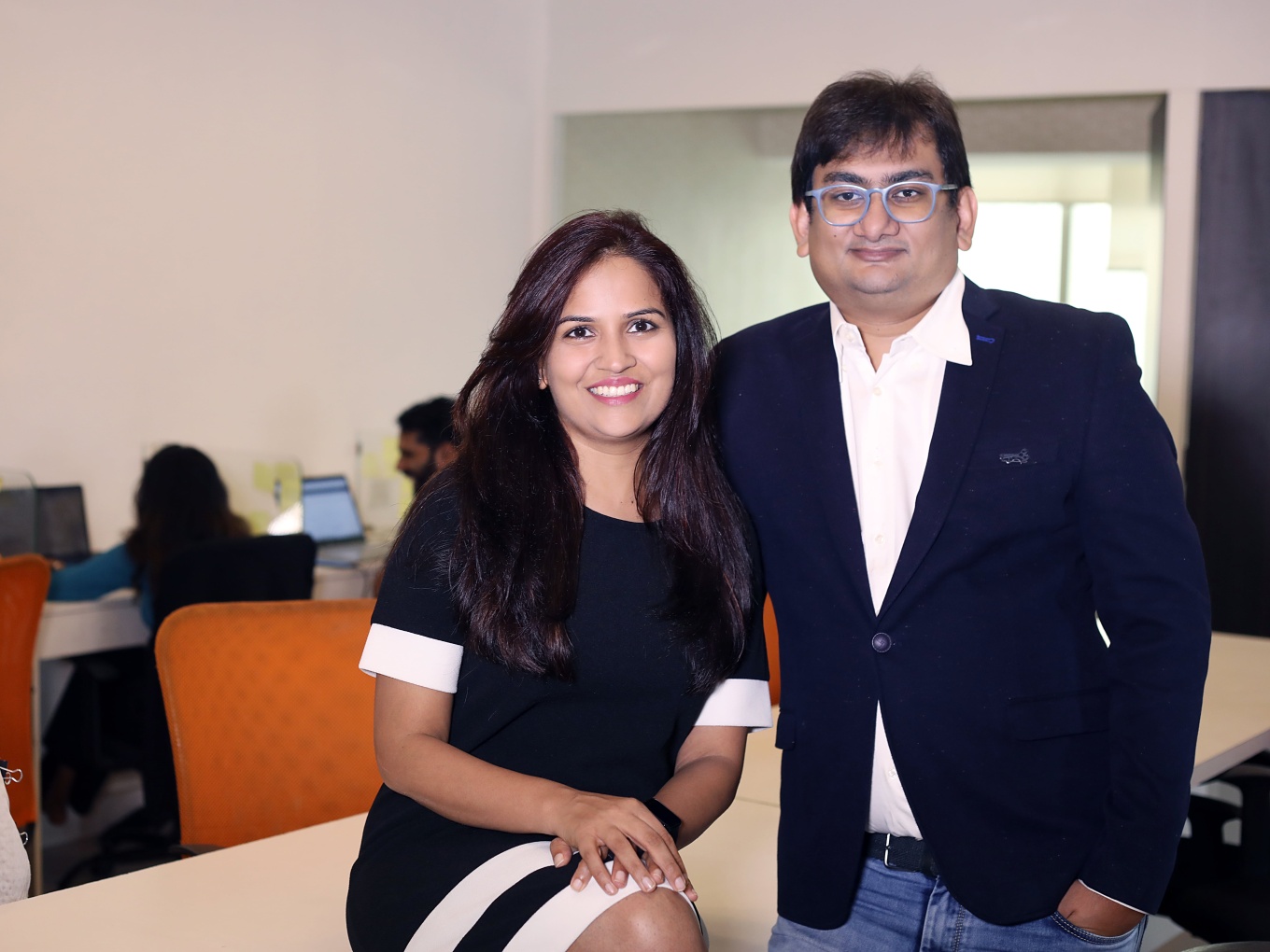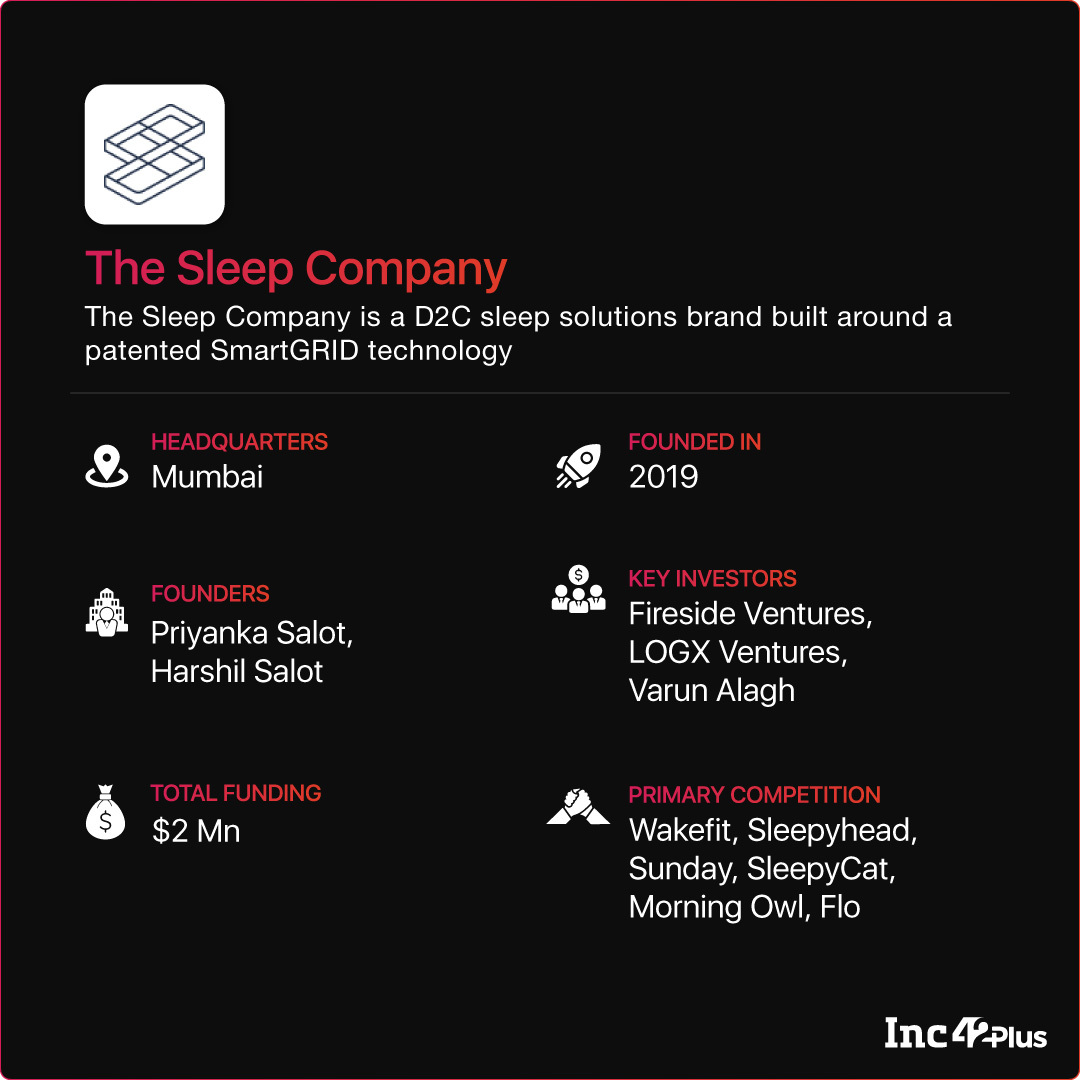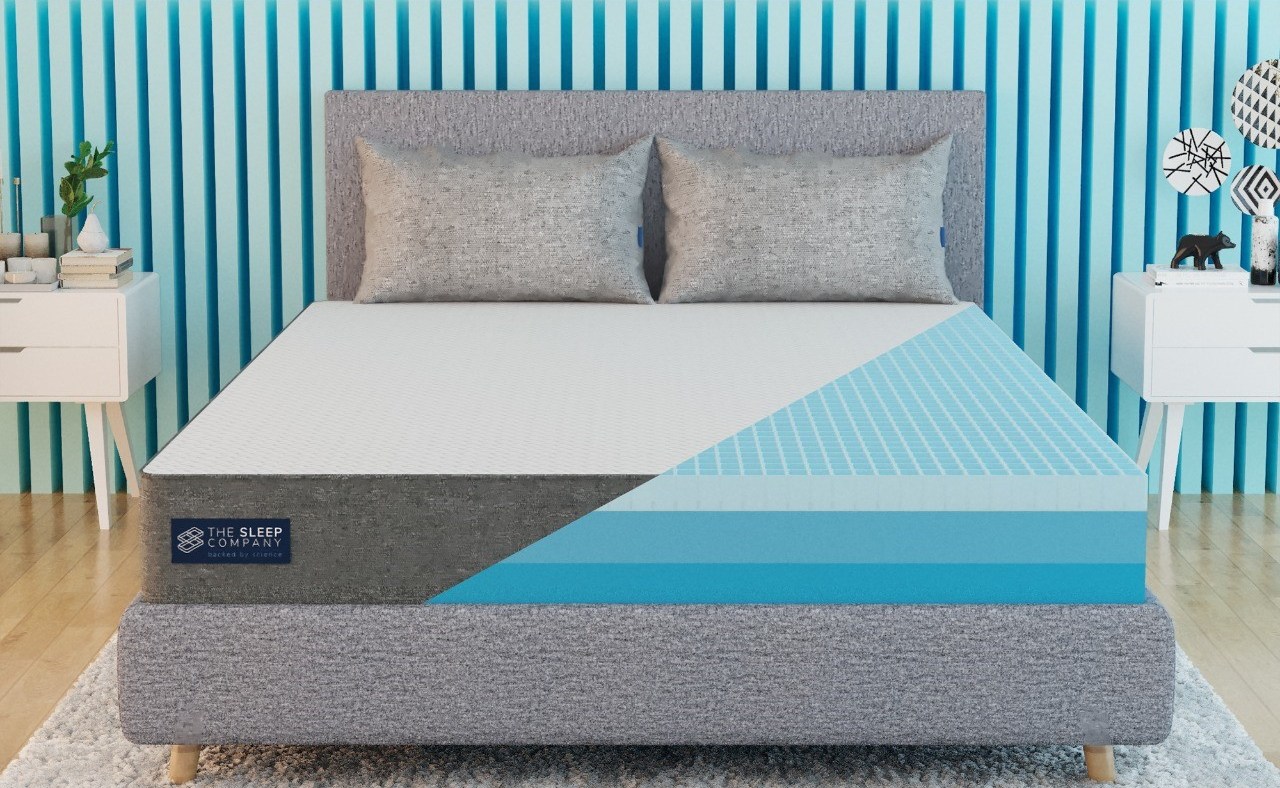
If there’s one category of products that has truly become an example of the power of direct-to-customer, it is the sleep solutions and mattress market. Over the past 5-6 years, brands such as Wakefit, Sleepyhead, Sunday, SleepyCat, The Sleep Company (TSC), Morning Owl, Flo and others have become more and more prominent players in India’s ‘sleep tech’ market.
While the Indian market is currently dominated by memory foam-based mattress products from most of the D2C brands, Mumbai-based The Sleep Company has latched on to a different niche with its patented SmartGRID mattress tech that was developed in association with India’s Defence Research & Development Organisation (DRDO) and Dr AK Tripathi, a retired DRDO scientist. It’s this unique product that has attracted investors, the company’s founders Priyanka Salot and Harshil Salot told us.
“Memory foam was invented in the 1960s. That’s before colour TVs or smartphones or anything in our lives became smart. The consumer habits are completely changing, but we are still using an outdated product,” Priyanka told Inc42.
Today, The Sleep Company is announcing a INR 13.4 Cr in Pre-Series A round, led by prominent D2C investor Fireside Ventures, along with participation from LogX Ventures and Mamaearth cofounder Varun Alagh.

What The Sleep Company’s Grid Tech Brings To The Bed
Founded by the husband-wife duo in November 2019, the company claims that it is the only mattress maker in Asia to offer a grid-based mattress. Unlike latex or memory foam, SmartGRID is said to be a hyper-elastic polymer which is laid out in a grid to offer what the company claims to be a superior experience for sleeping. Up to 60% of the market is foam-based mattress, Harshil said, which confuses the end customer as well.
The grid’s walls and columns can fold in and spring back up on a more granular level than a mattress which has a predominantly flat foam base. This flexibility is said to allow more comfort for side sleepers, back sleepers, and stomach sleepers. The company imports the polymer from Japan and Europe and has set up a manufacturing unit near Mumbai to make its products. At the moment, it is developing mattresses and pillows using the same grid technology.

With the fundraise, the founders are looking to enhance R&D capabilities, hire talent, brand investments, and for global market expansion. In particular, the company is targeting the Southeast Asian market, where it will still have a unique selling point. In terms of the grid mattress technology, US-based mattress and sleep solutions company Purple is a direct competitor.
While Purple has a huge head start over TSC and Indian brands, and is also publicly listed, like the US brand, The Sleep Company also harbours ambitions to move into more products around sleeping and sitting. Harshil said TSC is looking at chairs as the next segment for disruption, particularly workplace seating. These will be built on the same grid base. The company also has plans to venture into furniture such as beds, which are usually bought together with mattresses.
Going After The Premium Segment
The Sleep Company is looking to grab the cream of the Indian market. Admittedly, The Sleep Company’s mattresses are slightly more expensive than competing offerings. For Priyanka, this is not a big challenge because the Indian consumers are realising the value of spending half of what they might on a smartphone for a mattress that will last ten years.
“We are seeing rising incomes in metros and people focussing more on lifestyle needs after the pandemic. The demand for home comfort has gone up,” she said, adding that premium bedding is no longer an aspiration, but a choice for health and wellness.
With the drastic change in urban lifestyle over the past year, consumers are now focussing more on their health and mental wellbeing, with sound sleep being an essential component. New-age mattress players are focussing more on the customer service experience as well as initiatives to educate potential customers about the long-term value of choosing a more modern mattress.
As seen in a recent Inc42 Plus report, the Indian mattress market, valued at $1.7 Bn in 2018, is poised to touch $2.5 Bn in 2022. The share of unbranded products stood at $570 Mn in 2018 but is estimated to grow by 64% to touch $937 Mn. Globally, the market size may reach $40.4 Bn by 2027, from $30.4 Bn in 2019, growing at a CAGR of 4.2%. In the past few years, the industry has witnessed a rising demand for disruptive and premium products in this space, and a dozen startups/D2C brands are catering to the changing consumer requirements.
As a D2C brand, Priyanka said TSC’s idea for customer success is to communicate these benefits clearly throughout the purchase journey. Harshil added that thanks to a 100-day free trial (which is offered by rivals as well), the customer sees the kind of positive impact the grid mattress can have on sleep. This changes their perception of it being an exorbitant product. Plus, the cost is averaged out over at least 10 years, he claimed.
In terms of the sales channels, Priyanka added that the marketplace presence has helped TSC grow the brand awareness of those who are casual shoppers or maybe looking for future purchases. Besides this, it also sells directly through its own website, built on top of Woocommerce. “Today, we see almost an equal split between our website and Amazon or Flipkart. In fact, it is becoming skewed towards our own website.”
Another challenge for a bulky product like mattress is that logistics partners often will not have the capability for last-mile fulfilment and delivery. Harshil believes that this is changing as they are willing to listen to the needs of D2C brands given the rapid growth in the last year. “The logistics ecosystem in India is developing quite fast and that is also helping us deliver. So normally to most Tier-1 and Tier-2 cities, we are able to deliver within 3-4 days maximum.”
Both founders said that taking into account customer feedback has been one of the biggest advantages for The Sleep Company. The next lineup of products have all been chosen due to what its current customer base has asked for. The Sleep Company claims to be on track to deliver 100 cr in next 18-24 months and 500 cr in next 4-5 years. Since the founders did not reveal the exact revenue and the company has not filed its financials for FY20 or FY21, we cannot independently verify these claims.
Among its rivals, Wakefit has been a rare example of profitability in the D2C space as seen in the Inc42 Plus analysis on the segment. In FY2019, the gross profit margin for the company stood at 41.2% compared to 38.5% in 2018. Its revenue in FY2020 grew to INR 199 Cr from INR 80 Cr in the previous year.
In terms of the average revenue per customer, Harshil told us that since 65% of its revenue comes from the top 35 cities, the average ticket size is on the higher side. Currently, it is making INR 20,000 per customer, he claimed.
The post Is The Sleep Company’s Grid Tech Enough To Challenge India’s D2C Mattress Brands? appeared first on Inc42 Media.
0 Comments